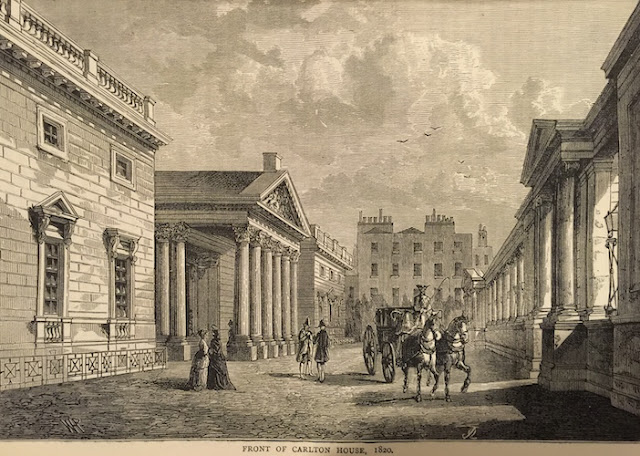Baron von Aacken, the Waterloo Hero Who Committed Suicide
In London in 1817, two years after the battle of Waterloo, a shocking event took place. A foreign gentleman who had arrived in the country three months earlier, shot himself in the head at the entrance to Carlton House in Pall Mall, the residence of the Prince Regent.
The melancholy background story tells us a lot about the unequal recognition and reward that was offered to the commanders in this allied victory in which British, Prussian, Hanoverian, Bavarian, Belgian, Piedmontese, Sardinians and even some Frenchmen fought side by side against the Imperial forces.
The facts were reported in The Gentleman's Magazine a couple of weeks after his death, when a jury at the inquest pronounced a verdict of suicide caused by insanity, and having read various testimonies from his military colleagues, said that von Aacken had played a vital, key role in winning the battle of Waterloo. Without him the allied army would never have regained its position after the French attacks had succeeded in breaking up their formation. Von Aacken had come to England, hoping for some reward or post, and had been unable to obtain either. He was disappointed, desperate and distraught.In Pall Mall, by shooting himself with a pistol in a hackney coach, at the gate of Carlton House, Charles Ewald Baron Aacken. He was descended from one of the first families in Prussia. Prince Leopold of Saxe-Cobourg, father of our amiable Princess Charlotte's husband, was his godfather. His brother-in-law, Baron Leopold de Lillier, is a resident at Weillic, in Prussia. He had been upwards of 20 years in the army, ten of which he had been in the Prussian service, and the remainder in the Hanoverian.
Notwithstanding he had distinguished himself in every way possible in the army, yet his services remained unnoticed by his own Government or any of the Allies, either as to honours, promotion, or emolument; and in consequence he became a desperate man.
When he arrived in England, about three months since, he was possessed of about 200 Louis d'Ors, when he met with a friend whom he consulted on the best way of sending 100 of them abroad to his mother. His friend endeavoured to persuade him from such an undertaking, telling him his mother was not in need of them; to which the Baron replied, his mother could give them away among the poor, and after he had spent all his money in this country he would shoot himself; which he verified, as he paid his last note to the hackney-coachman; and, it appearing before the Jury that he died without having any effects except his clothes, swords, and pistols, (one of the swords had a pistol attached to it, which he had taken from the Aid-de-camp of Marshal Ney, the Chevalier Ruspini.)
The foreman of the Jury summoned to inquire into the cause of his death, and which returned a verdict of Insanity, very humanely undertook to respect the remains of an unfortunate foreigner, and has paid the expences of his funeral. It appears from his papers that he was the original instrument, previous to the arrival of the Duke of Wellington in the field from Brussels, in gaining the victory in the memorable battle of Waterloo, by regaining the position of the Allied Army, which they had lost by the French having succeeded in attacking and breaking a square.
A certificate to that effect has been found since his untimely end, from Major-general Von Bothemer, who took the command of the battalion of Bremen and Verdun, after Lieut.-col. Von Schkopp was wounded in the memorable battle of the 18th of June, 1815, testifying that after the battalion of Verdun, which was formed in squares, had been compelled to retire to Waterloo by the fire of the enemy, Baron Von Aacken highly distinguished himself, and having assembled a small body of men, succeeded in regaining the position which the square originally possessed, and that in consequence the remainder of the brigade which had already retreated as far as Waterloo, returned at nine o'clock in the evening, and joined Baron Von Aacken's party for the night, in their original position; dated Orchies, 14th April, 1817. All the exertions of the other Officers to restore order had been in vain.
There is a certificate to the same effect by General Sir Colin Halkett, endorsed as unsolicited by Baron Von Aacken. There are five certificates speaking of him in the highest terms of praise as an officer and a gentleman, and countersigned by command of his Excellency General Count Alten, commanding his Hanoverian Majesty's troops in France, &c. the 13th of April, 1817.
Source: The Gentleman's Magazine, June 29th 1817.
If you enjoyed reading this please show your appreciation by buying me a coffee. Here is the link.
https://ko-fi.com/juliagasper11400/




Comments
Post a Comment